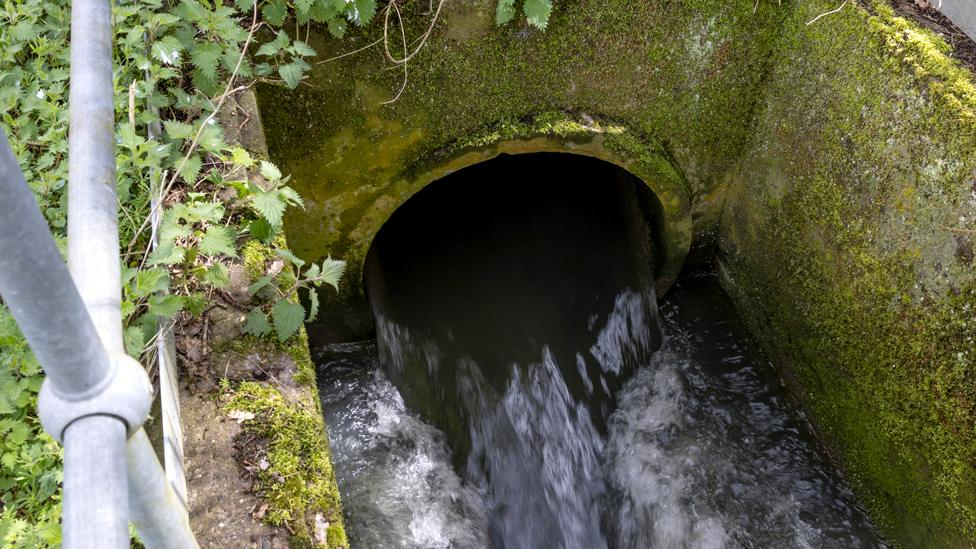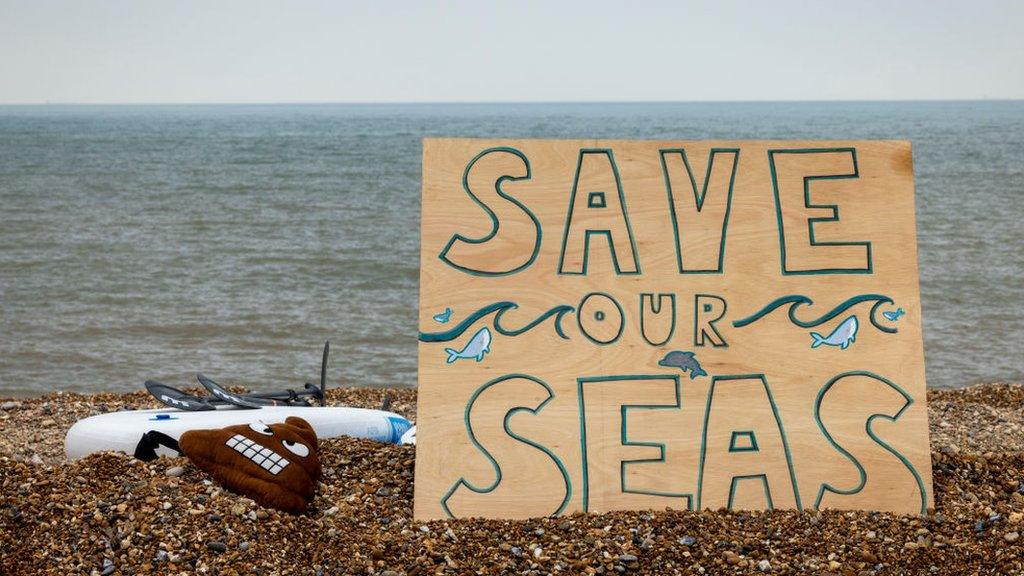Boat Race: Oxford rowers criticise sewage levels in River Thames
- Published
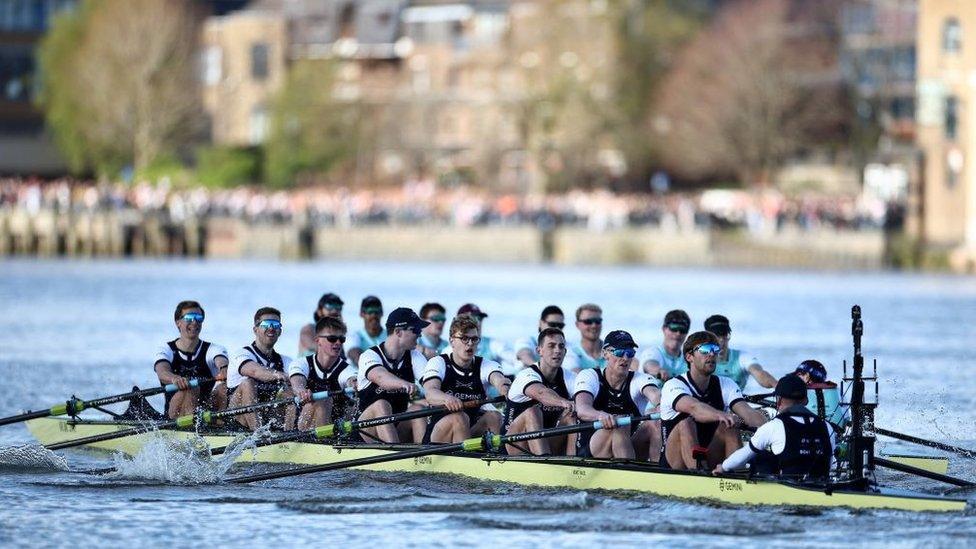
University of Oxford rowers have criticised sewage levels in the Thames after losing the Boat Race to Cambridge.
High levels of E. coli have been found in the river where universities race every year.
Leonard Jenkins of the Oxford men's team told BBC Sport he had been vomiting before the race.
Thames Water has said improving river health was a "key focus" for the company.
On Wednesday, Environment Agency figures revealed raw sewage spills doubled last year in England to 3.6 million hours of spills compared with 1.75 million hours in 2022.
Within the spills are human waste, wet wipes and sanitary products which can pose a serious risk to swimmers.
Boat race crews had been given safety advice to avoid swallowing water splashed up from the Thames.
Cambridge, who won both male and female races, was also warned against throwing the cox into the water as is tradition.
Speaking to BBC Sport, Mr Jenkins said: "This morning I was throwing up and I wasn't sure I was going to be able to race.
"It would be a lot nicer if there wasn't as much poo in the water.
"It's not to take away from Cambridge, as we may not have beaten them even if we were all on top form."
A second member of squad said three people had to miss training sessions due to stomach bugs.
In a statement, Oxford University Boat Club (OUBC) said: "Three members of the OUBC men's blue boat came down with a stomach bug in the week of The Boat Race, the origin of which we cannot definitively say."
"These things happen in the final lead up to the race, including in years we have won," it continued.
Coxswain Will Denegri said: "Whether that's related to E. coli in the river I don't know, but it's certainly not helped our campaign...
"It's not an excuse, but it definitely hasn't helped our preparation."
Testing by campaign body River Action and Fulham Reach Boat Club earlier this month detected high levels of E. coli, which can cause serious infections.
River Action said the testing locations in its research suggested the source of pollution was from Thames Water discharging sewage directly into the river and its tributaries.
The UK has combined sewage systems which mean rain and sewage share the same pipes, so if there is too much rain, sewage treatment works can be overwhelmed. Sewage is spilled into waterways to prevent the system backing up.

This year Cambridge women were warned not to throw their coxswain into the river
Sewage spilling can be legal but environmentalists say it should only happen in exceptional weather.
Industry body Water UK cited record levels of rainfall but called the situation "unacceptable".
A government spokesperson also said sewage discharged into UK waters was "completely unacceptable and water companies need to clean up their act fast".
They went on to say the government is taking "tough action to hold them to account", with "stringent targets in place" and the quadrupling of water company inspections.
In a statement issued before the race, Thames Water said: "We have experienced higher than average long-term rainfall across London and the Thames Valley with groundwater levels exceptionally high for the time of the year.
"The overflows are designed to operate automatically when the sewer network is about to be overwhelmed, which then releases diluted wastewater into rivers, rather than letting it back up into people's homes.
"We are working hard to make these discharges unnecessary and have published plans to upgrade over 250 of our sites."
- Attribution
- Published30 March 2024
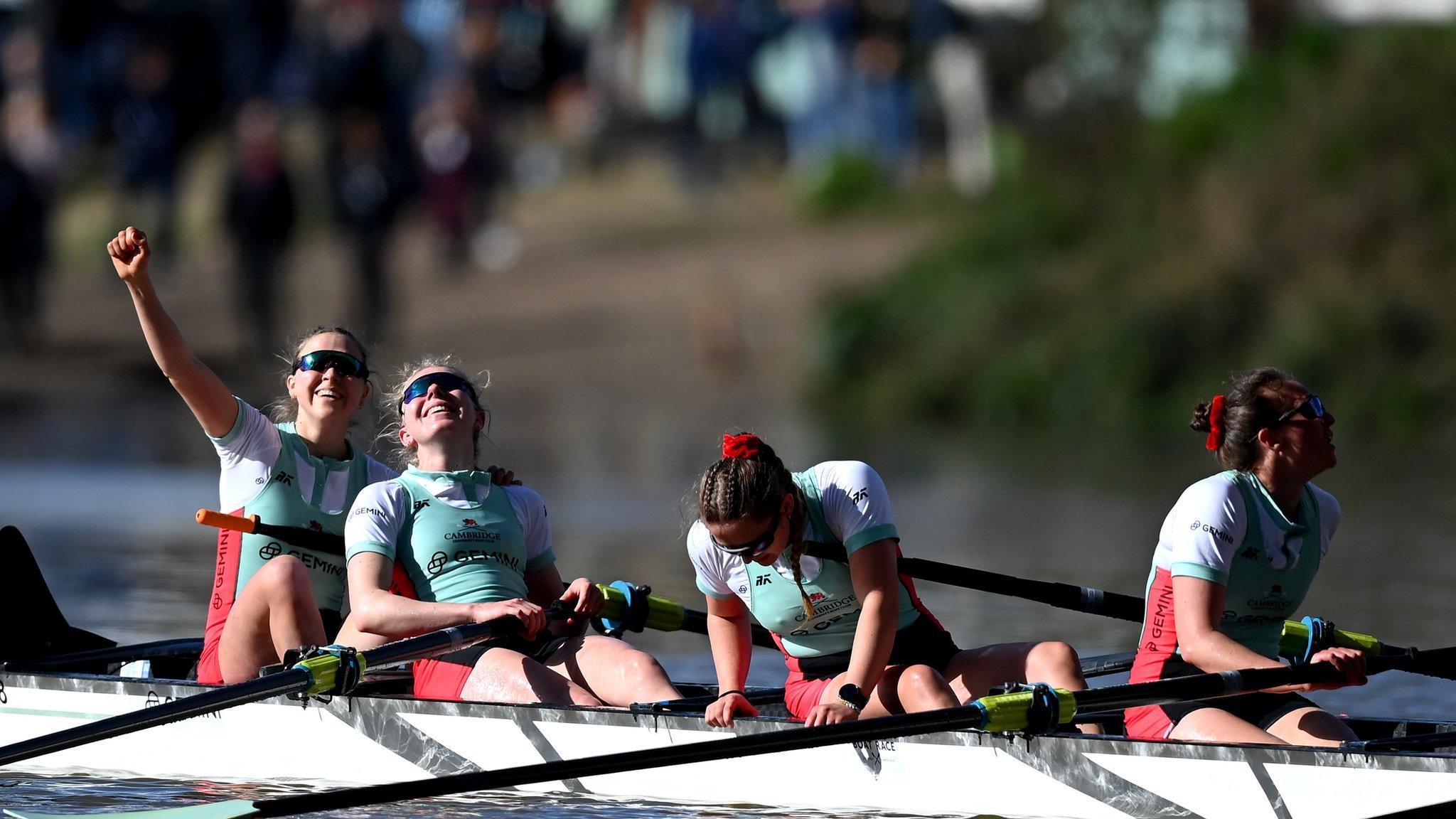
- Published27 March 2024
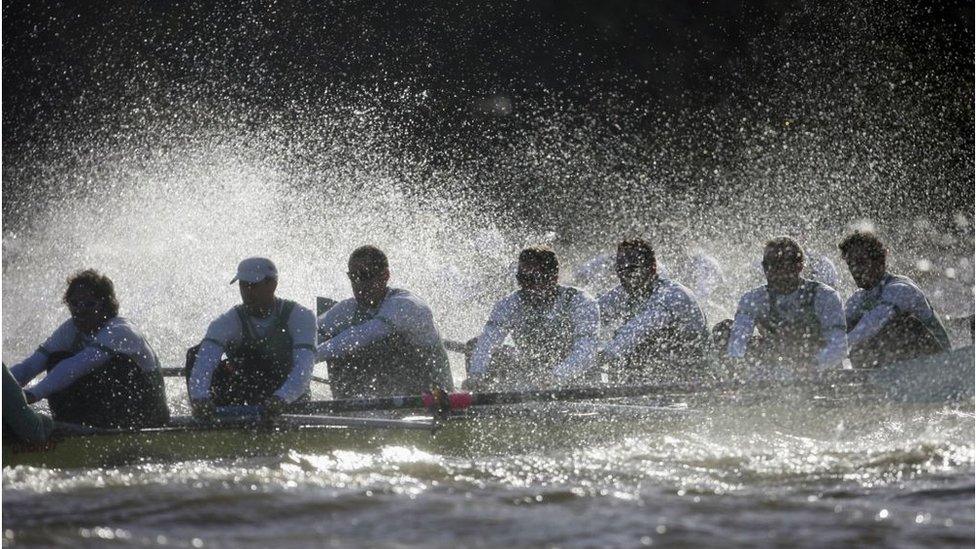
- Published27 March 2024
